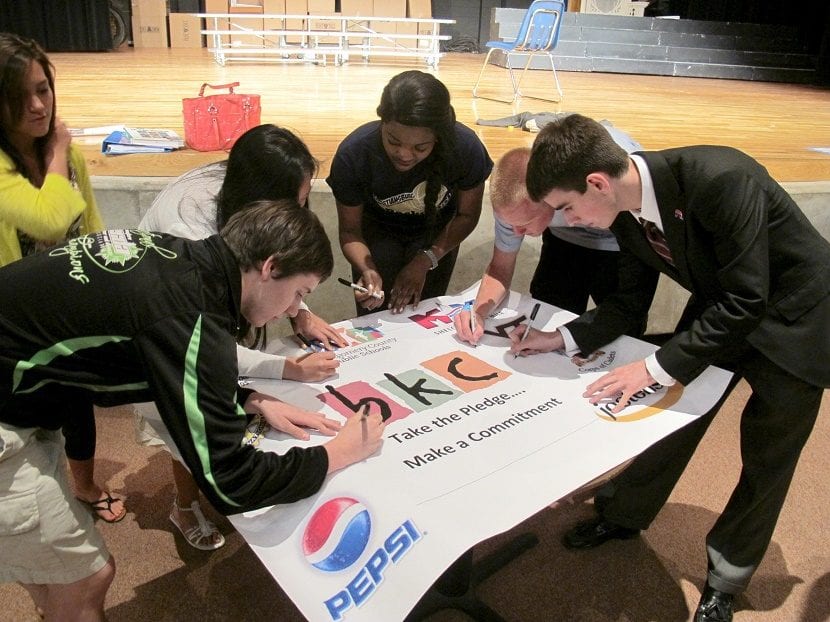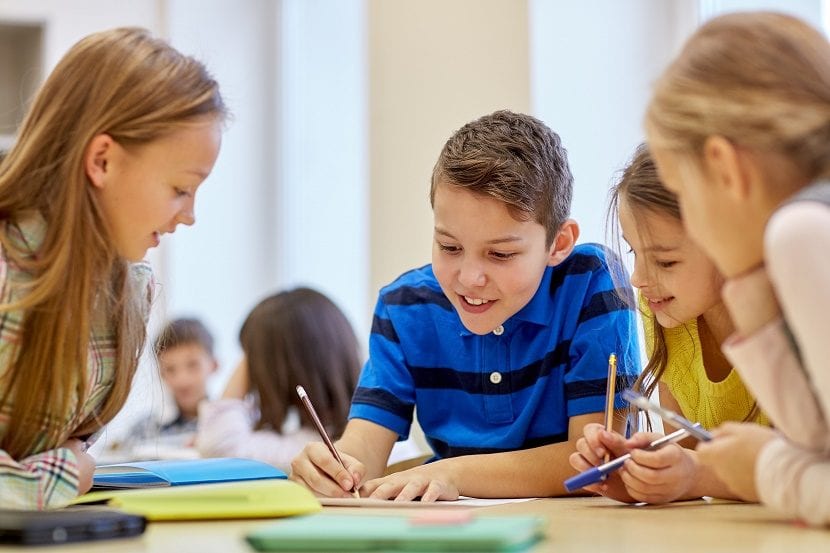
Cooperative learning is a technique that allows students to learn from each other and acquire important interpersonal skills. Have you ever participated in a group project or committee to accomplish some task together? If so, it is likely that you shared some knowledge with other people in the group, and you may have learned something from others. This is what is called cooperative learning.
Cooperative learning is an organized and structured way of using small groups to enhance student learning and interdependence. Students have a task, better known as a mission or objectives, and they work together to accomplish this task. Each individual has responsibilities and is responsible for assisting in the accomplishment of the task. Success will depend on teamwork.
In addition to learning from each other, students also learn to work as part of a team and learn from each other.
3 interrelated factors
Cooperative learning is a successful teaching strategy in which small teams, each with students of different skill levels, use a variety of learning activities to improve their understanding of a particular topic. Each member of the team is responsible for their own learning, for teaching what they know and also for meeting the objective in collaboration with others cooperative learning participants.

Cooperative learning success is based on three interrelated factors:
- The objectives of the group. Cooperative learning teams work to earn recognition for improvement from each member of a group.
- Individual responsibility. Each member of a team is evaluated individually. Teammates work together, but individual learning advances form the basis of a team score.
- Equal opportunity for success. Individual improvement over previous performance is more important than reaching a pre-set score. A student may be more likely to be successful working in a team and absorbing more knowledge from others than doing it by himself.
However, The ultimate success of cooperative learning is based on a unique and very important principle: students must be taught how to participate in a group situation. Teachers cannot assume that students know how to behave in a group setting and must establish clear rules.
How to group students
Cooperative learning takes some time to get used to the work for both the instructor and the students. There may be several attempts to find comfort for all, as it may be necessary to make some adjustments in teaching and learning for the benefit of all. It is important to have some techniques up your sleeve in order to group students correctly.

Cooperative groups are generally made up of different students. In addition, the diverse groups will be the richest since there will be more differences in the abilities of the students. For example, a group may be made up of 4 or 5 students in which there may be two average students, one student with low results and another that is above average, so everyone is fed by everyone.
In most cases, students should not form their own groups and can always have the option to change groups. Once the groups have been assigned in a classroom, it is important that the members of the groups be changed every two months, thus fostering greater integrity, tolerance, and also diversity. The groups must be equitable and designed to also work for equality.
Benefits for classroom learning
There are many benefits that can be derived from using cooperative learning strategies. Here are the benefits you may notice after implementing cooperative learning tasks in the classroom:
- Cooperative learning is fun, students will enjoy and learn much more motivated.
- Cooperative learning is interactive, so students are engaged, they become active participants in their own learning.
- Cooperative learning allows discussion and critical thinking, so students learn more and remember better what they have learned over a longer period of time.
- Cooperative learning requires students to learn to work together, This is an important skill for your personal and work future.